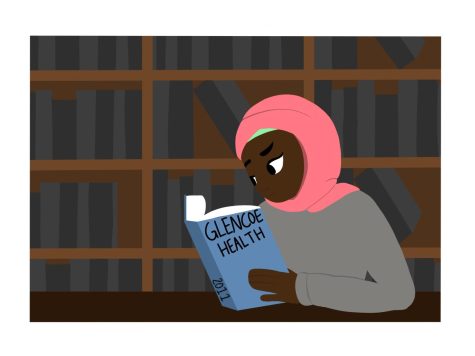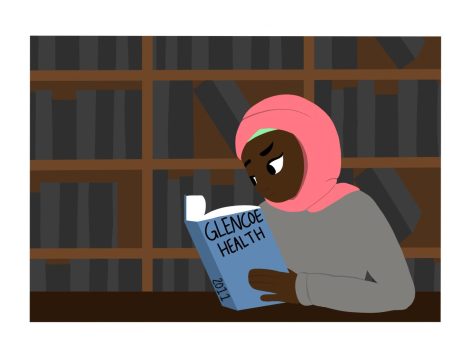Outdated curriculum fails students
October 20, 2022

Helping teenagers establish healthy habits is crucial to form a successful future. Thus, District 202’s health curriculum needs to be expanded to give students the best and most up-to-date information.
District 202 requires students to take health for one semester during sophomore year. The purpose of the course is to “…teach students the skills necessary to create a healthy lifestyle and promote personal, family, and community health. The skills will focus on analyzing influences on health, health promotion and disease prevention, accessing valid and reliable information, interpersonal communication, decision making, goal setting, advocacy, and the ability to practice health-enhancing behaviors” according to the district curriculum guide.
While the class is intended to be educational and informative, one semester is not enough to give students the most thorough health education.
It is essential to implement health education each year of high school. As students mature, information needs to grow and evolve with them according to new challenges.
The curriculum also needs to be updated. The current health textbook, “Glencoe Health” was published in 2011. The average sophomore in the class was only four years old when the book was released. Teachers are forced to turn to ancillary materials, and do their best with what they’re given to work with. Updating the curriculum would not only benefit students, it would benefit the teachers greatly.
In recent years, mental health has become an increasingly pressing issue amongst teenagers. With the pressures of school, parents and social media, teens are faced with more stress than ever before. Teaching students ways to safely cope is vital. Health classrooms need to focus on teaching students information regarding mental illnesses and healthy coping mechanisms to manage stress, anxiety and depression. Out of 100 North students surveyed only 10% of students believed the school addresses mental health in a sufficient manner in their health classes.
It is also imperative to improve sex education. Teaching students about healthy relationships is important during this time because as students get older, they begin forming personal relationships. Knowing the difference between what is healthy and what is not could make a world of difference.
Making education more inclusive to LGBTQ+ is also essential to the curriculum. It isn’t logical to only cater to one group of students while attempting to educate all.
District 202 requires every student to take eight semesters of physical education yet fails to prioritize personal health over physical health. While physical health is vital, personal health plays a large part in being physically healthy. Mental and emotional health are just as essential and physical health, and more than one semester needs to be allotted to educating students.
Changes are possible since the district regularly reviews curriculum. According to Superintendent Glenn Wood, “First thing is you tell your teacher, and they should talk to the department chair. Then, we have systems where we meet regularly to revise curriculum and make updates as needed. It’s generally a five-year review cycle. But, we can always make changes earlier if it’s brought up by the chairs. [Associate Principal in charge of curriculum and instruction] Mr. Bertoni meets regularly with the people at the district.”
Reexamining the health curriculum would create a more positive and informative environment for students. Learning the ins and outs of personal health whether it is mental, emotional or sexual health will set up students for success as they progress through and out of high school.







